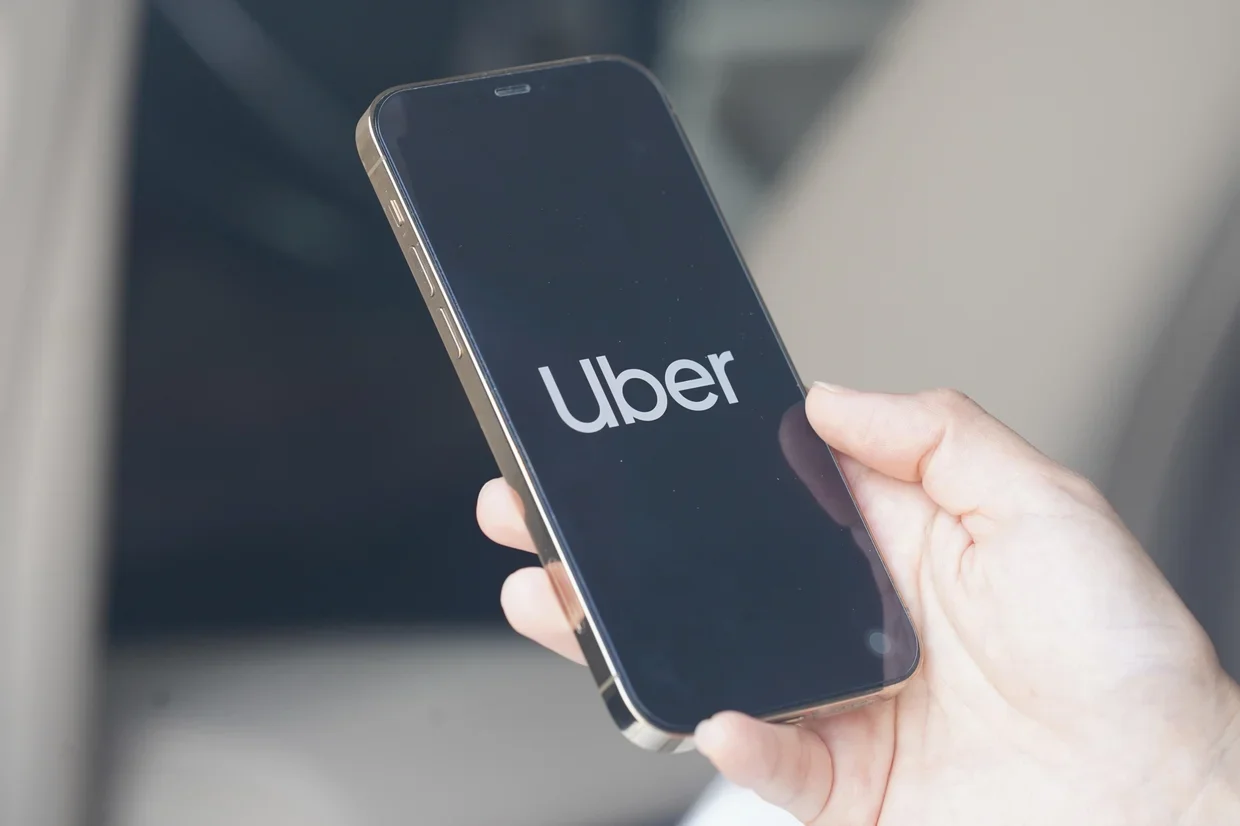A close-up of a person holding a smartphone displaying the Uber app logo. The phone is held in one hand inside a vehicle.
I’ve been denied rides with my service dog more times than I can count.
Not because I was unclear. Not because the law wasn’t on my side. But because a driver could take one look at us and decide: nope. And Uber, no matter what it says in press releases, let them.
Over the years, drivers have challenged me to file complaints, knowing nothing would happen. And they were mostly right. I started documenting the rejections publicly in 2018. I called it “rejection time,” the extra hour I’d build into my schedule just to find a driver who wouldn’t leave me at the curb.
If I needed to be somewhere at 1pm, I’d call a ride by noon. Not because the drive took that long, but because I had to plan for the fight.
Once, before Uber Pet was even a backup option, I was in such a rush I paid for an Uber Black. It cost exponentially more than UberX, just to avoid being denied again. I paid a premium to be treated like I belonged.
This wasn’t rare. It was weekly. Sometimes daily. And when I shared my experiences, the pushback came fast:
“You’re overreacting.”
“Maybe try Uber Pet.”
“Why didn’t you just leave the dog at home?”
Lovey isn’t a pet. She’s a highly trained service dog from Canine Companions®. She’s my access partner. Before her, it was Pico, my first service dog, who stood next to me through the worst of this. I still wish his name could be in the court record.
On Thursday, the U.S. Department of Justice filed a lawsuit against Uber for violating the ADA, denying rides to people like me. My name is in the complaint. CBS News covered it and quoted me saying what I’ve felt for years:
“The incidents are not isolated, but evidence of a widespread civil rights failure.”
“No one should be forced to choose between their mobility and their legal rights.”
It’s validating to be heard. But also exhausting that it took this long.
This lawsuit isn’t just about one company. It’s about a culture of compliance theater that leaves disabled people behind. And then expects us to be grateful for the ride when it finally shows up.
What I want now is simple: real enforcement. Not just good PR. Because access isn’t a suggestion. It’s the floor.
If you’ve never had to schedule rejection time, count yourself lucky. If you have, I see you.
And I hope you’ll answer this:
When have you had to shrink yourself just to get through the day?
What does accountability look like where you work, not just in writing, but in action?
Uber denies rides to passengers with disabilities, Justice Department claims in lawsuit


